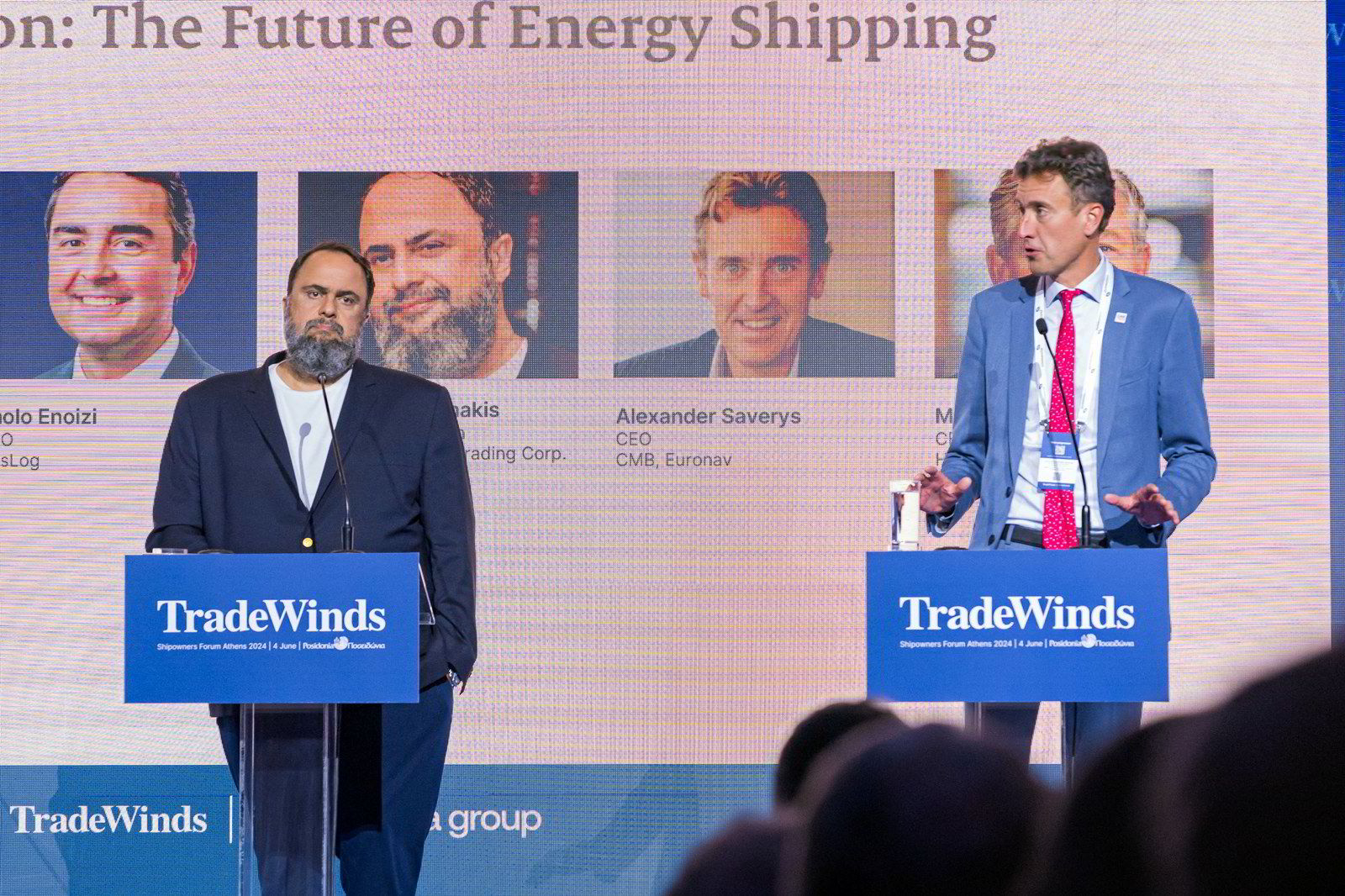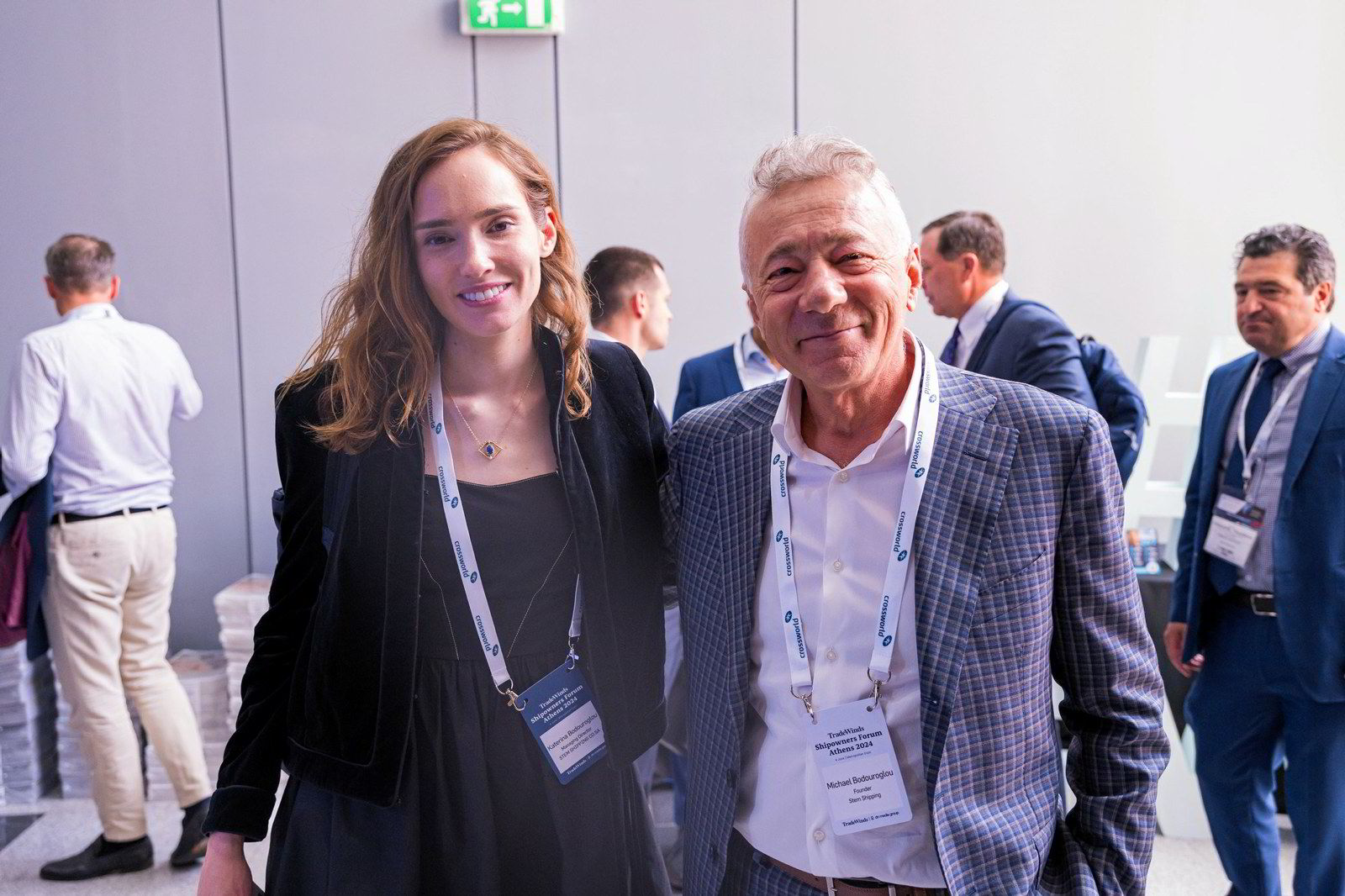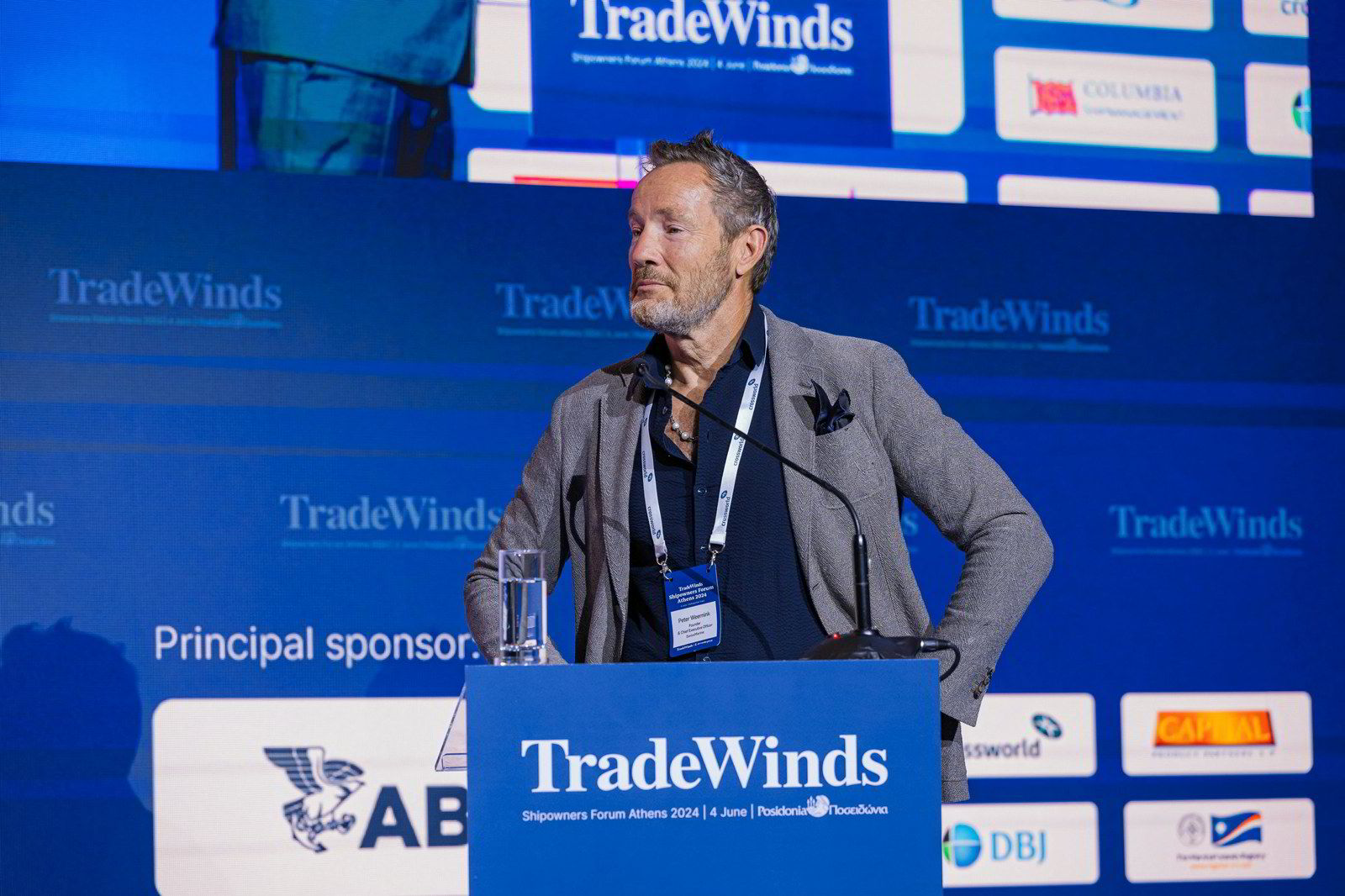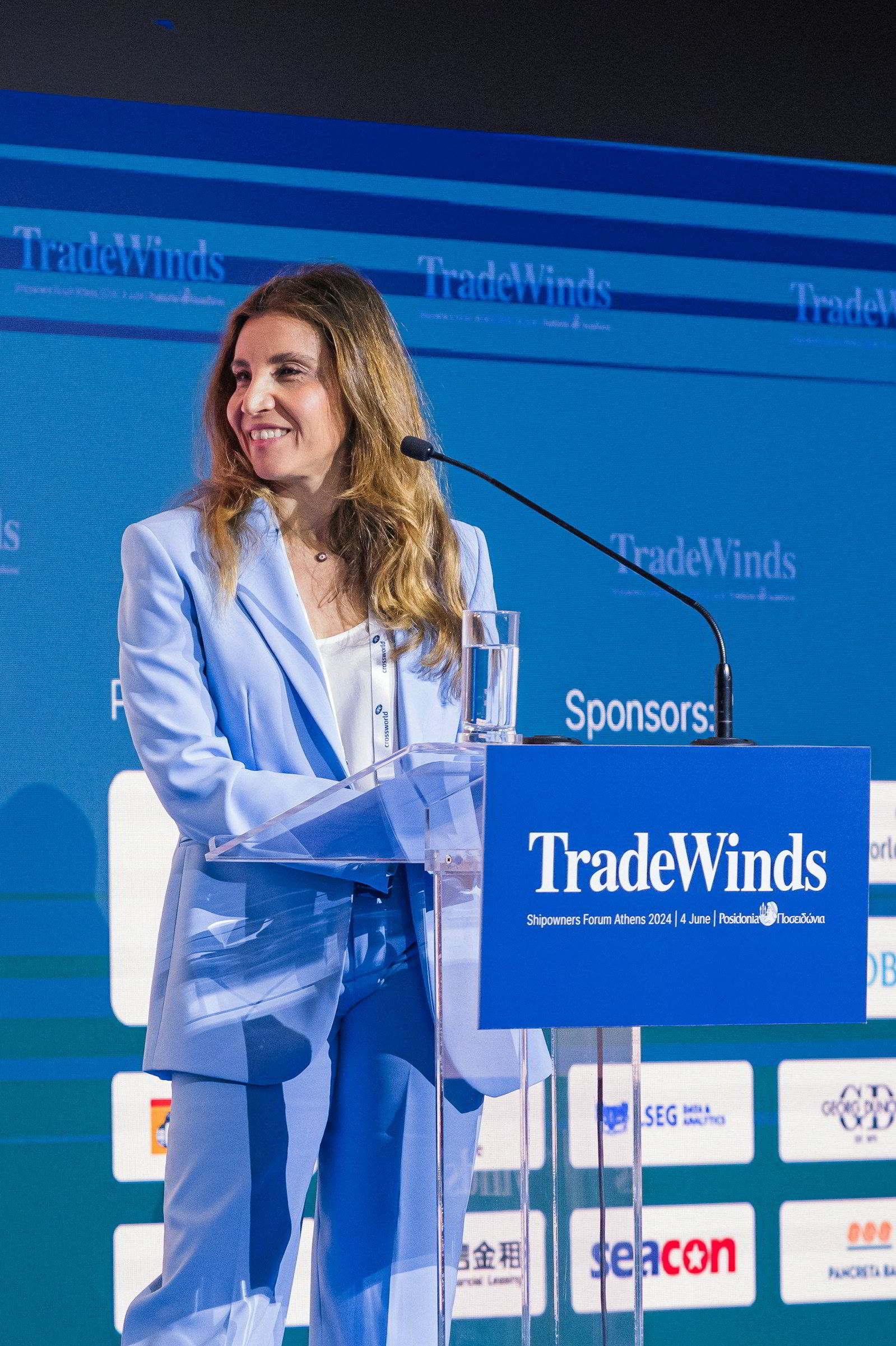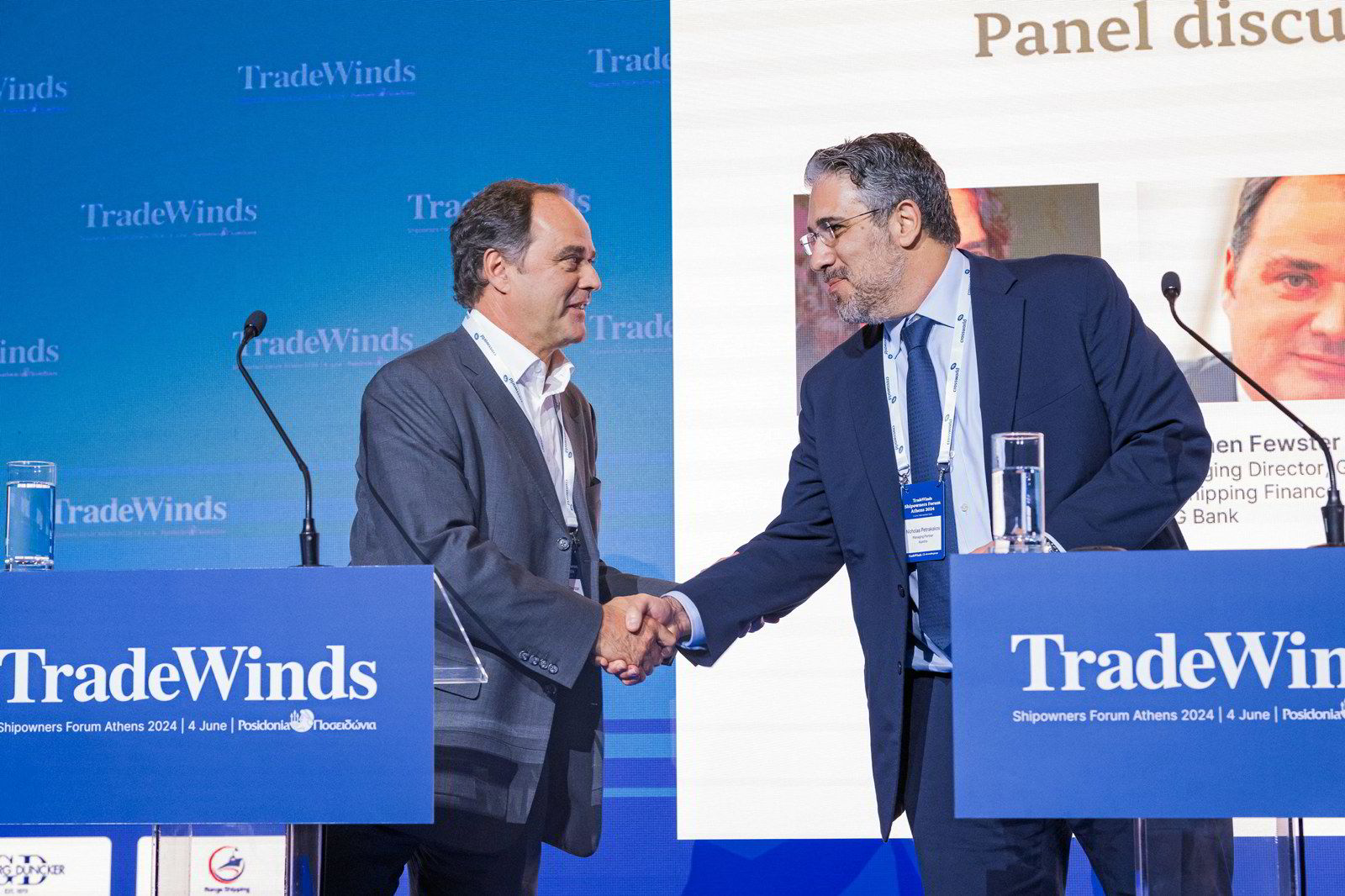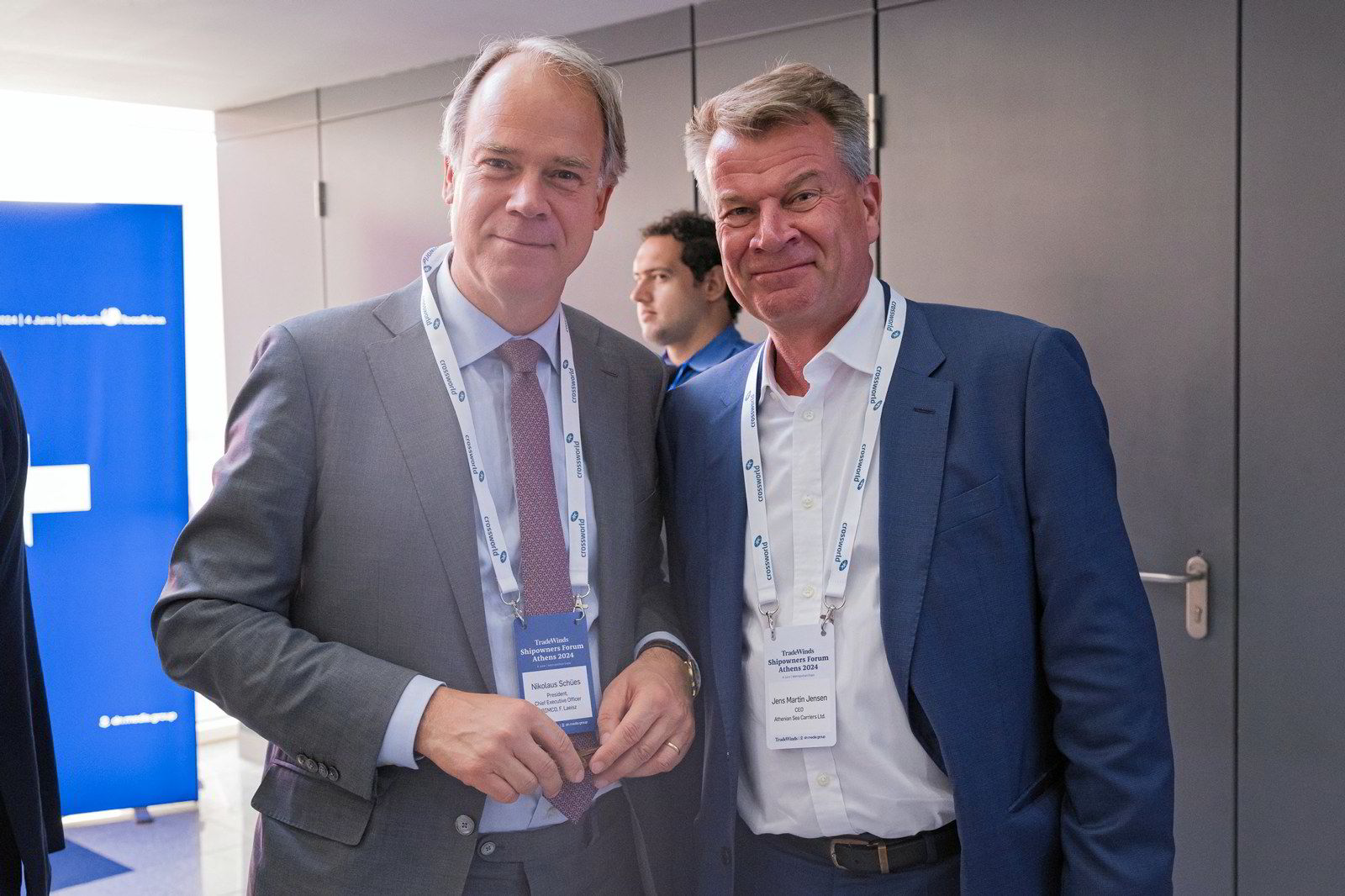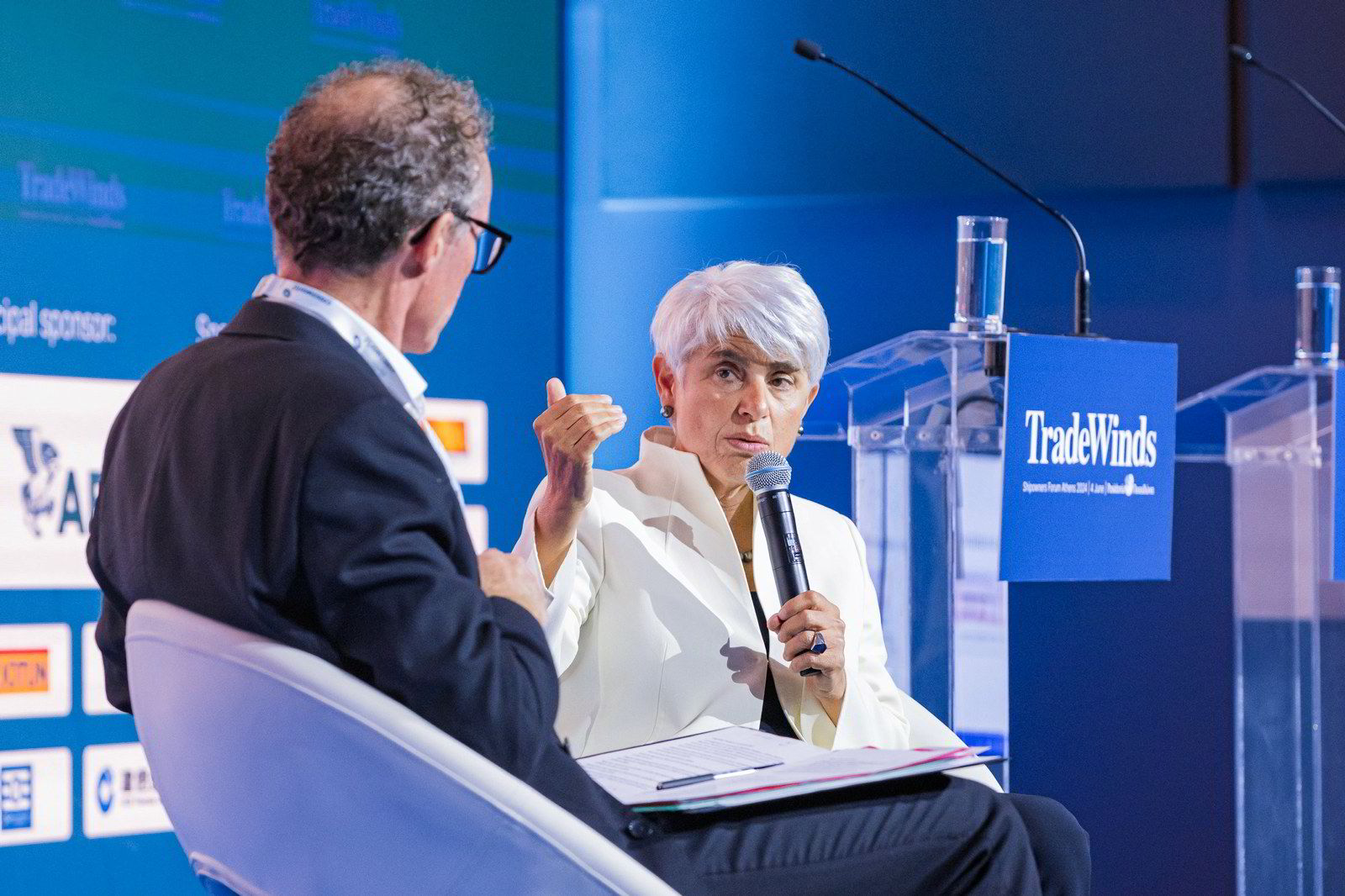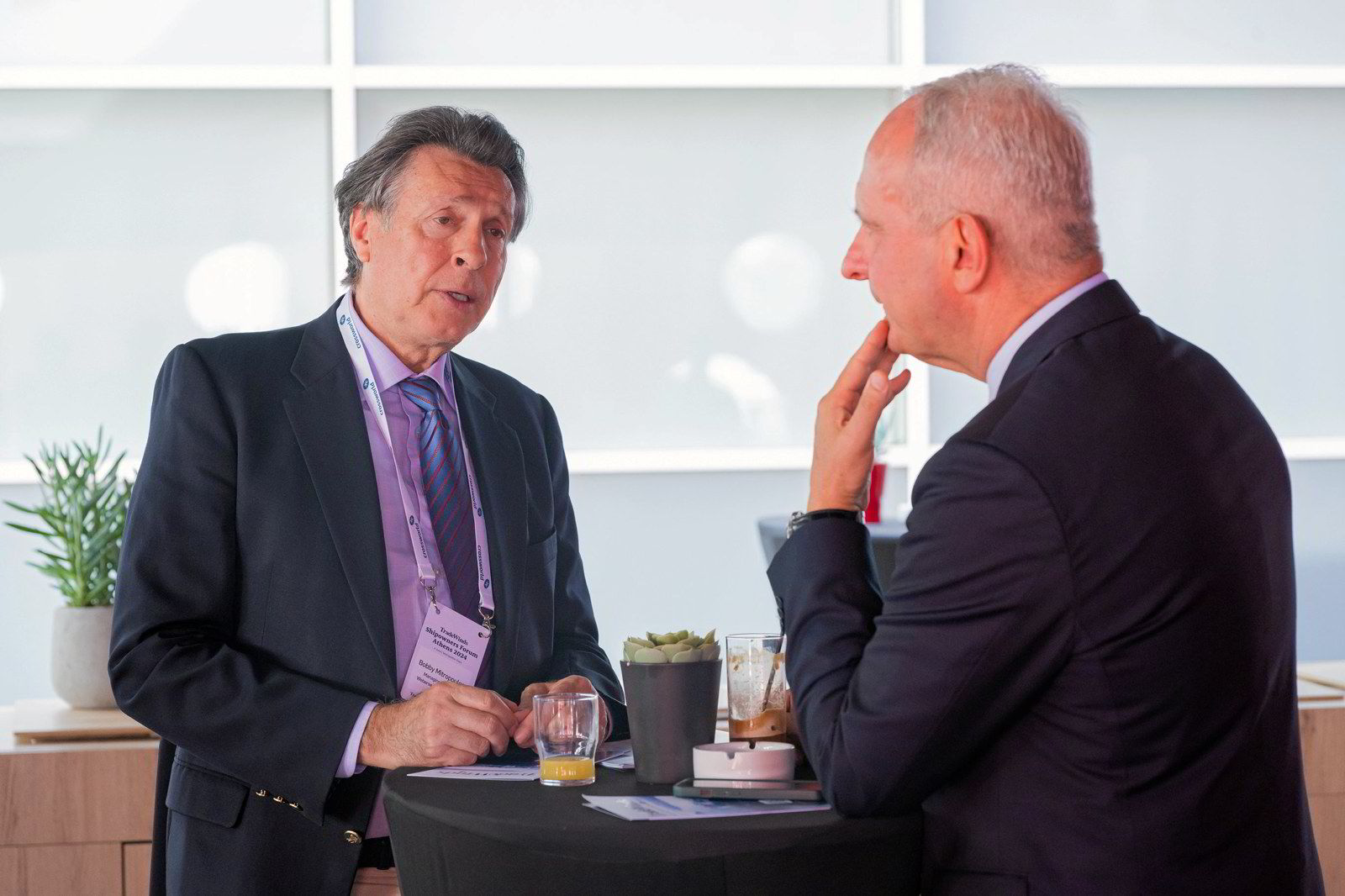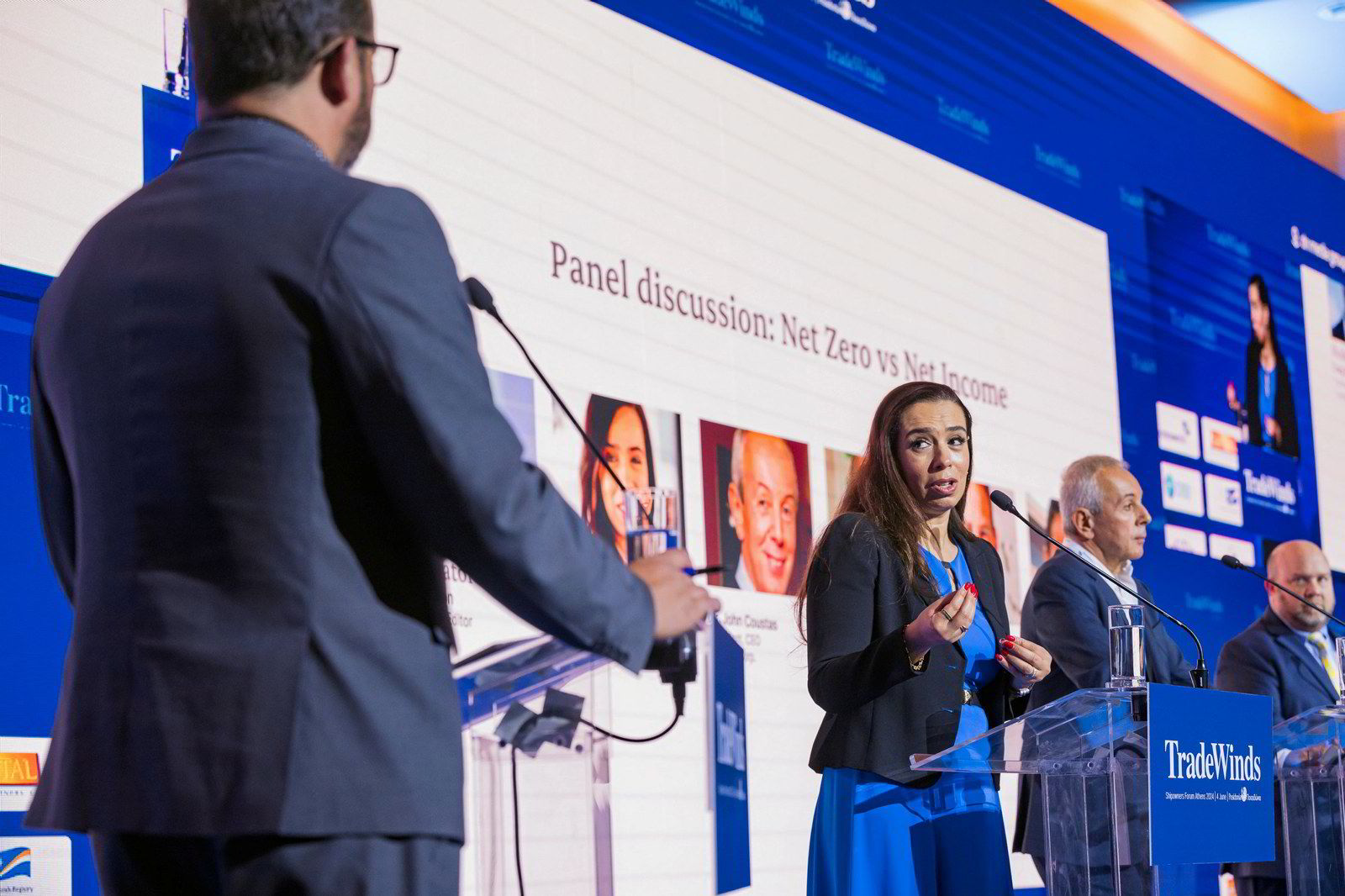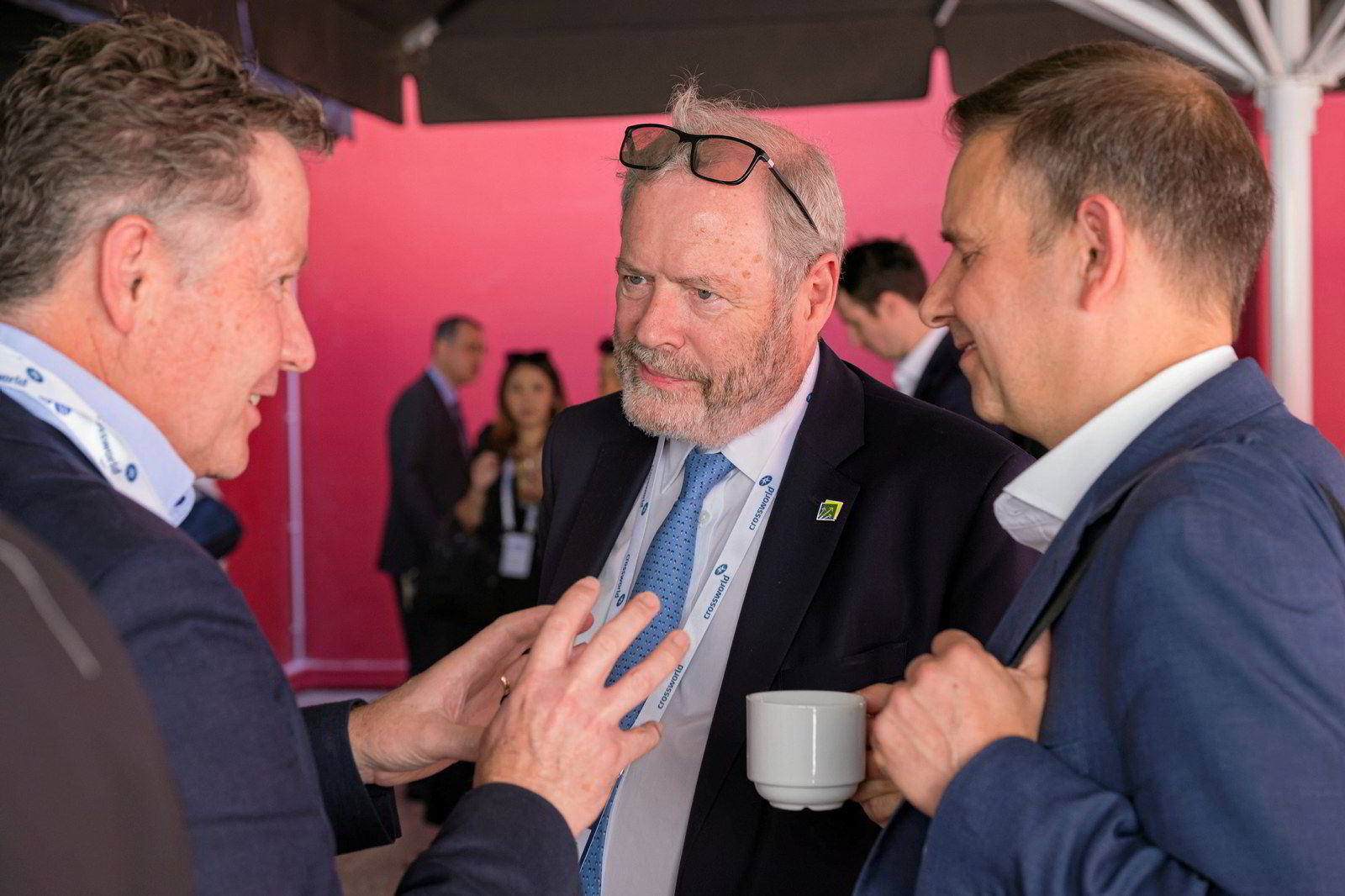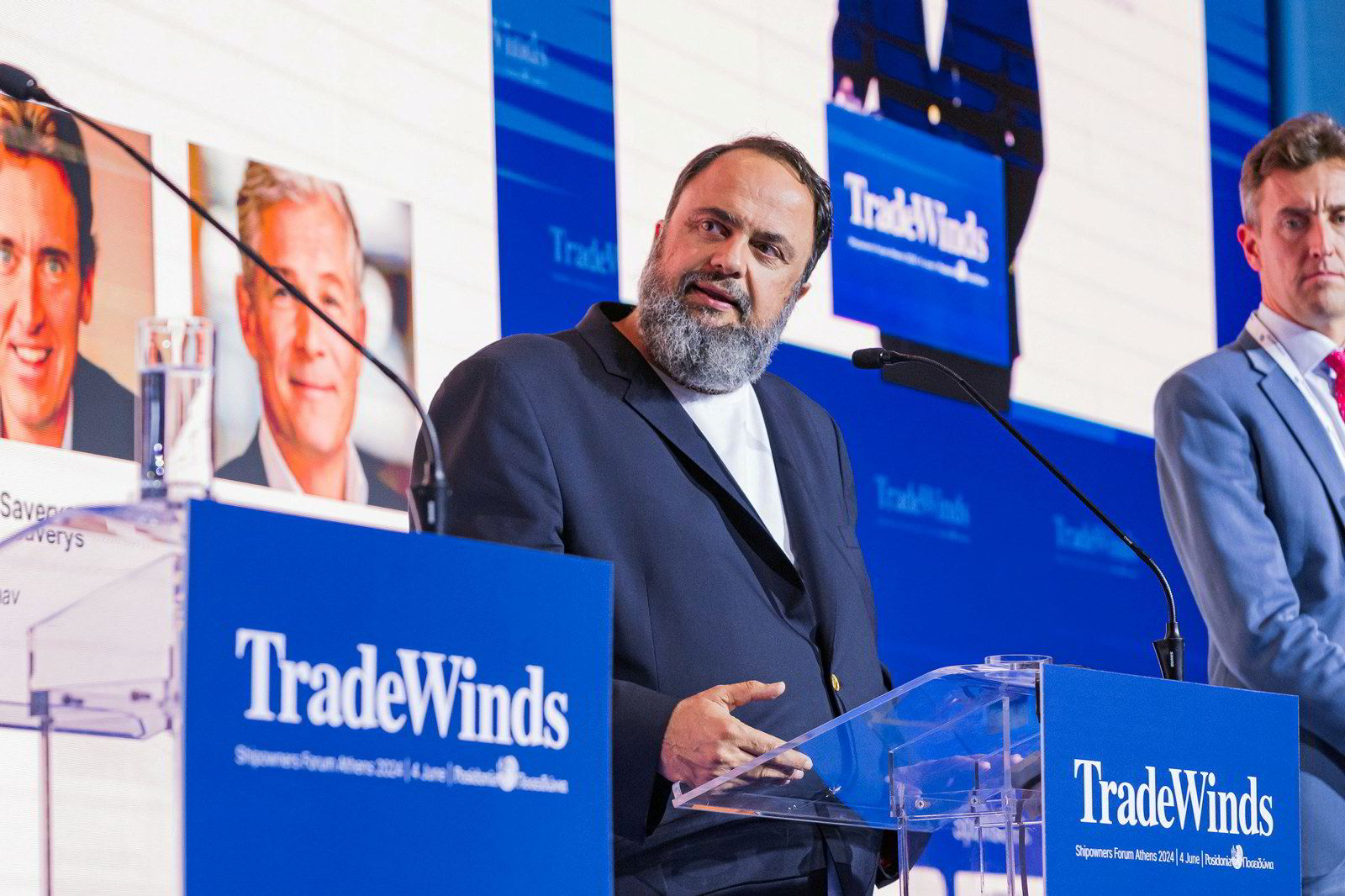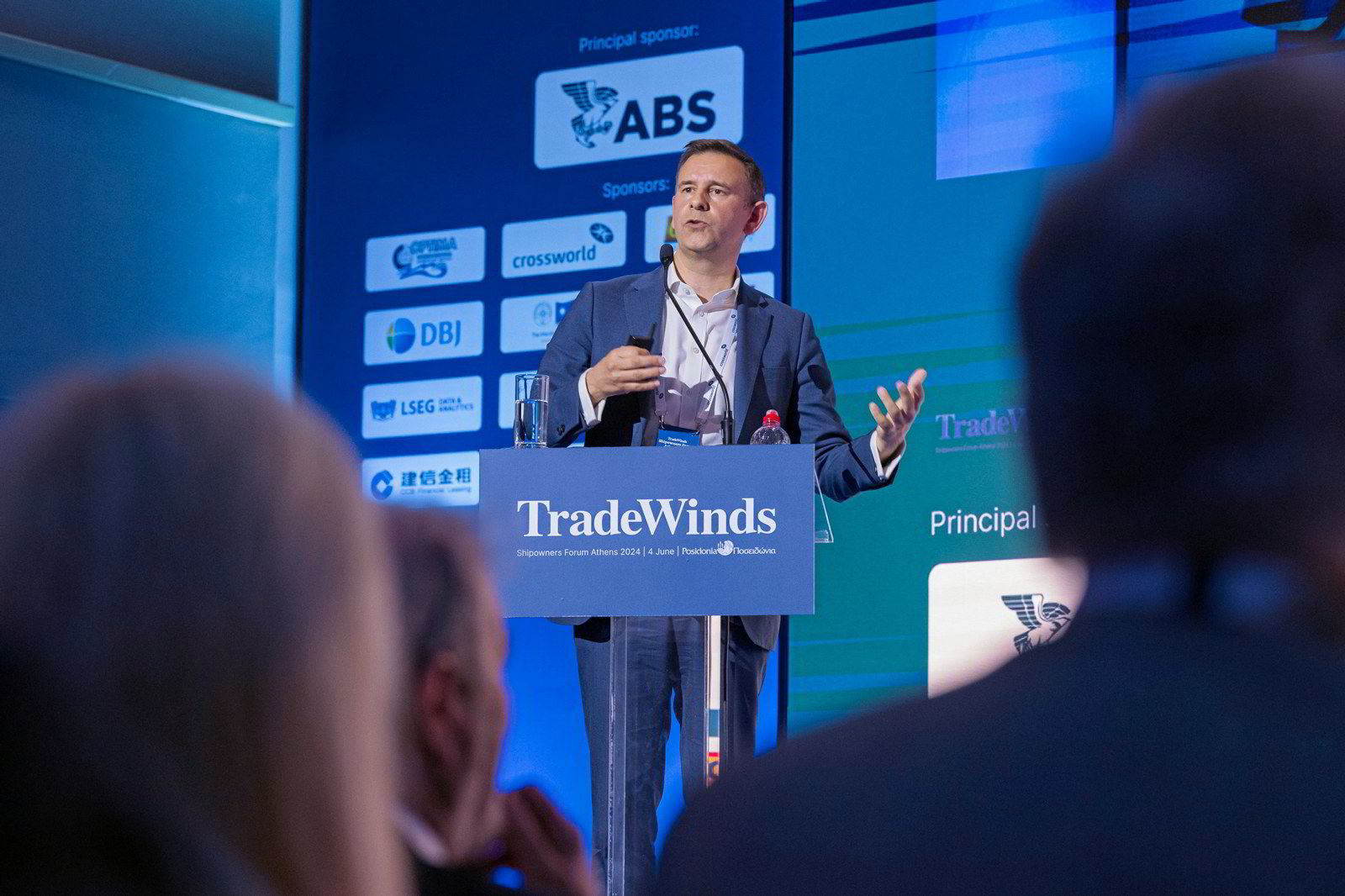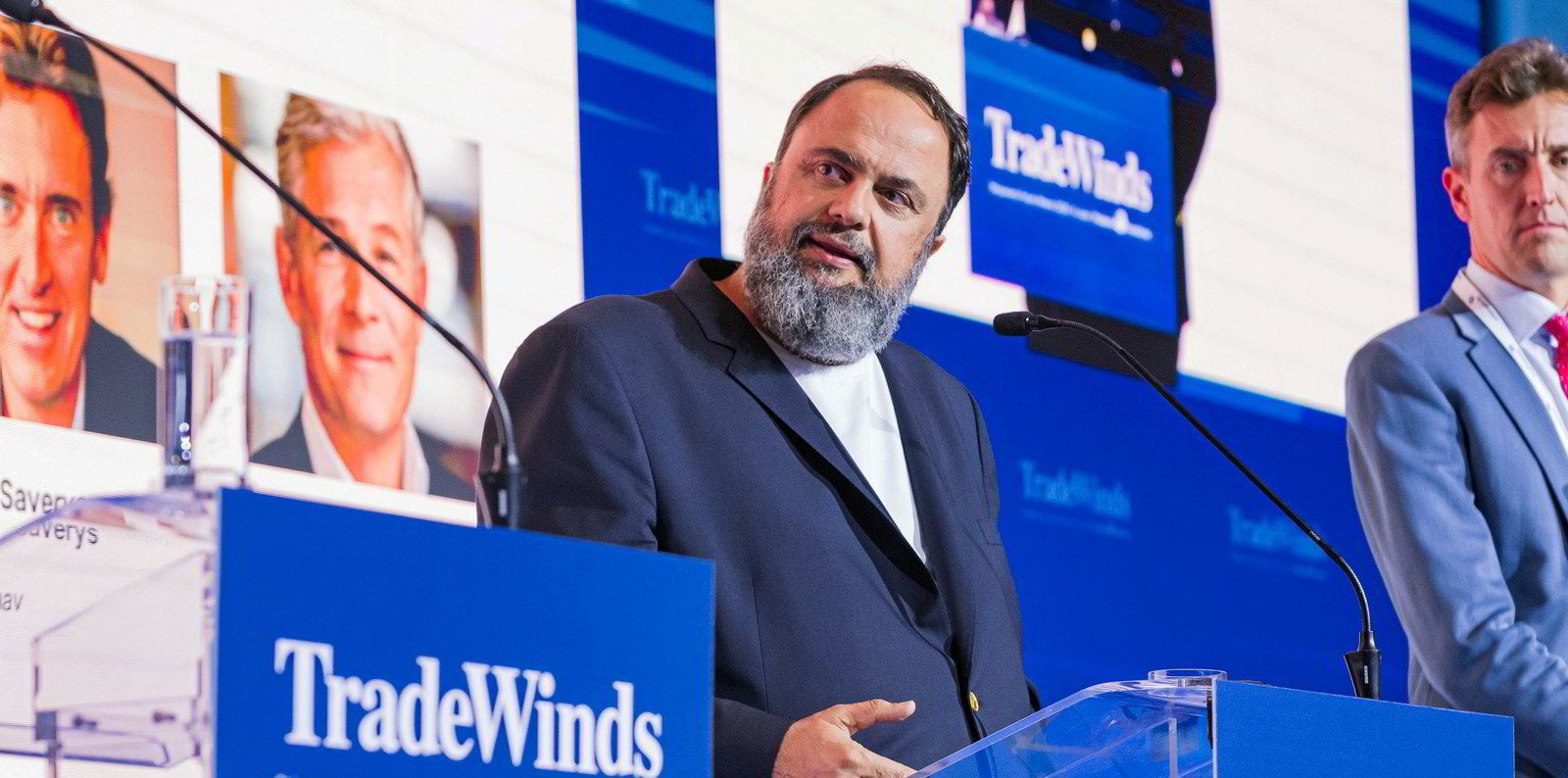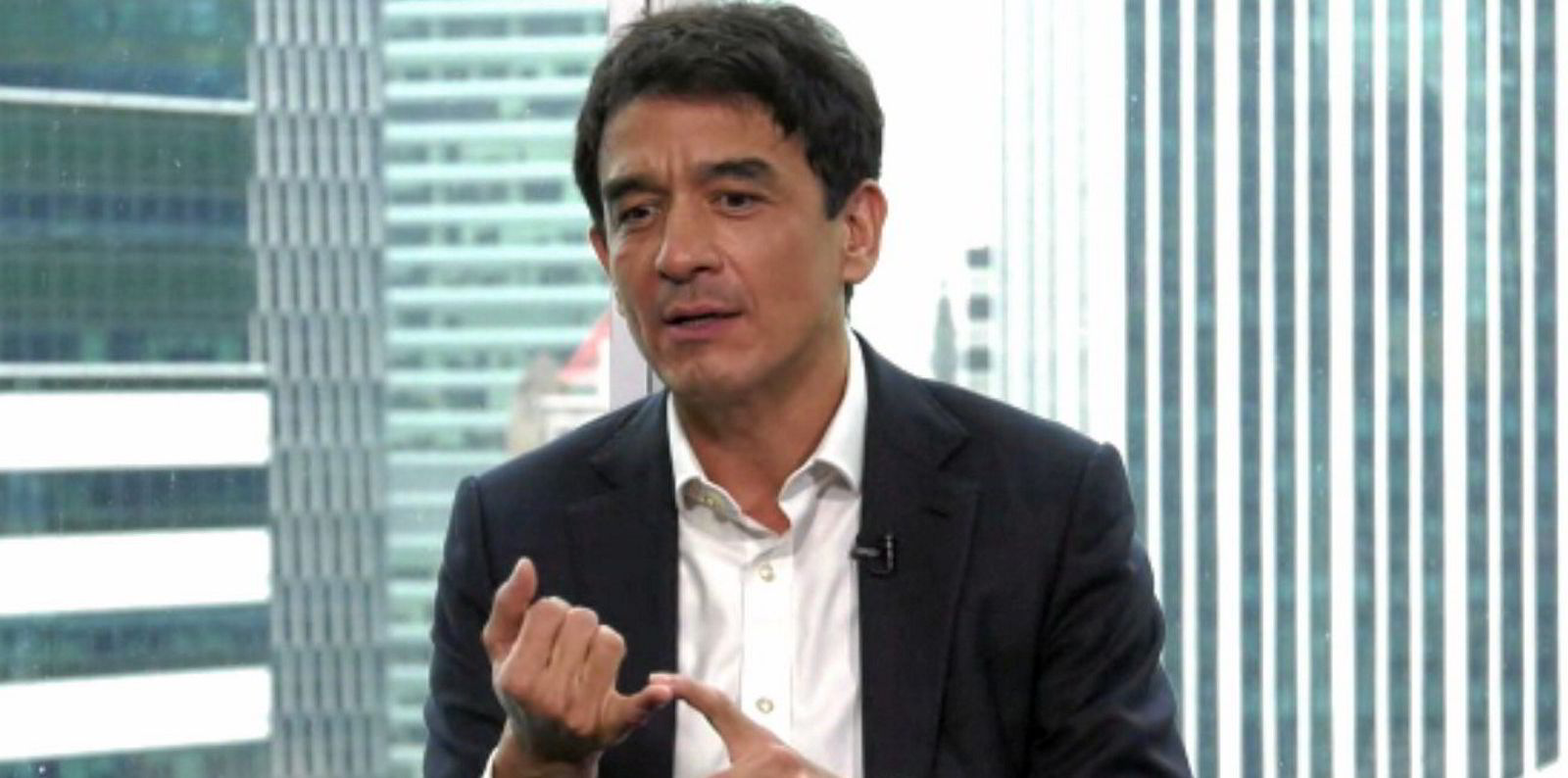“You can run but you can’t hide,” when it comes to maritime decarbonisation.
That was the message from Alexander Saverys and Mikael Skov at the TradeWinds Shipowners Forum at Posidonia.
Euronav chief executive Saverys has been one of the most visible movers in adjusting his company to ride the energy transition with a high-profile switch away from being a tanker pure-play taking shape.
“I’m doing exactly the same as everybody here,” Saverys said.
“We are transporting coal and oil, it’s fossil fuels and we are making good money. We are very happy with that.
“I think where we are slightly different than some people is we have decided when times are good we would reinvest some of the proceeds in a significant and radical way to prepare for tomorrow.”
While his family’s decision to merge tanker giant Euronav with private firm CMB.Tech and its raft of investments in future fuels has yet to convince all investors, Saverys said his focus for the second half of the year will be onboarding shareholders on the plan.
“I don’t think it’s a bet,” he said. “It’s making sure your company is ready for the future.
“Either you wait and milk the cow, you have your earnings and pay your dividend — which is very nice and we are doing — and do nothing next to that, or you try and put some money on the side to invest in the new technologies you will have to develop in order to decarbonise our industry.
“The fact we will have to decarbonise is a fact. We can run but we can’t hide. I believe if you are prepared you will have better answers and hopefully better profits in the future.”
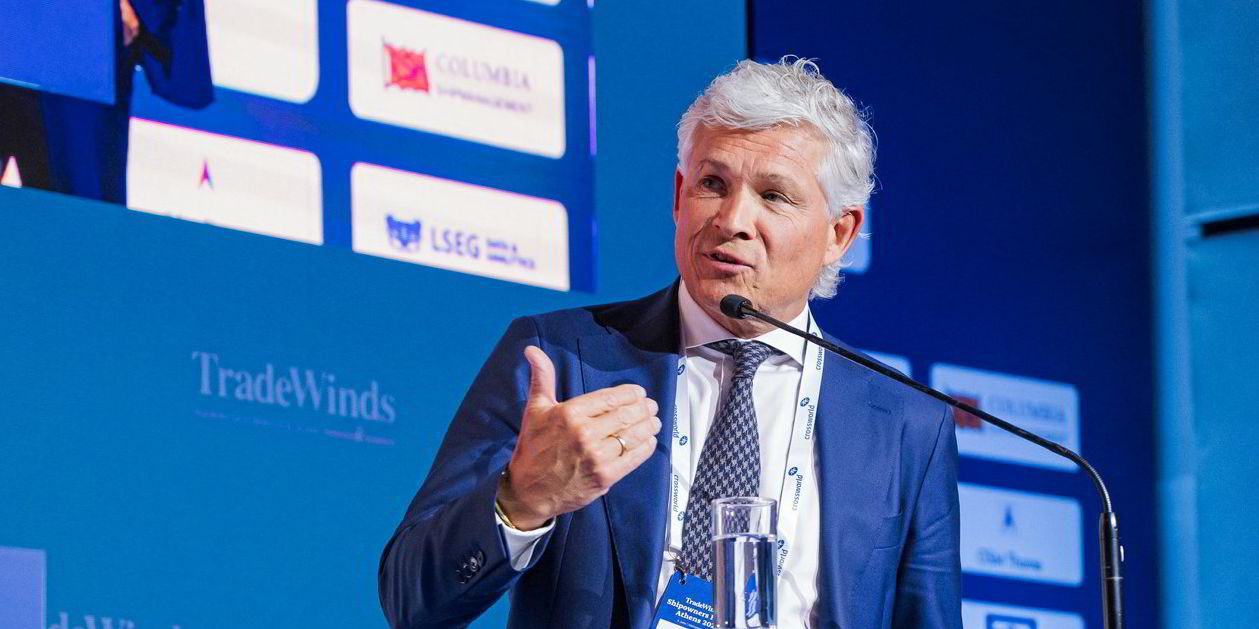
Hafnia chief executive Skov was at the event just a few days after it emerged that the company was working to build out a fleet of very large ammonia carriers in the next four years as it moves into new areas of energy transportation.
In its 2023 sustainability report, major shareholder BW Group said US-listed Hafnia is working with ExxonMobil and Mitsui OSK Lines on a large-scale clean hydrogen-ammonia production and export facility — Ascension Clean Energy — to be located in Louisiana.
Skov said he was excited about decarbonisation investments while stressing they needed to make economic sense.
“We are focusing on the current business remaining long and healthy,” he said.
He noted the VLAC project would involve long-term contracts and collaboration.
“For us, we will be more moving with our clients rather than trying to front-run the clients,” he said.
“When we go down that path it’s not massive risk and it’s also healthy for the business as we go forward,” he concluded.
